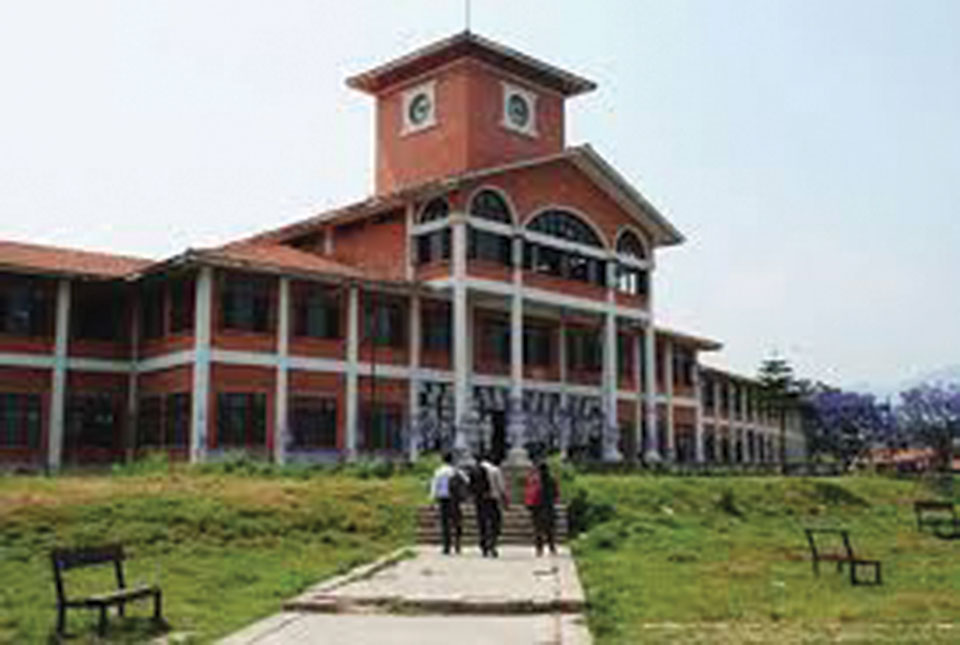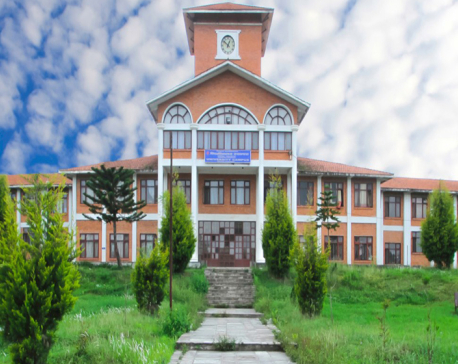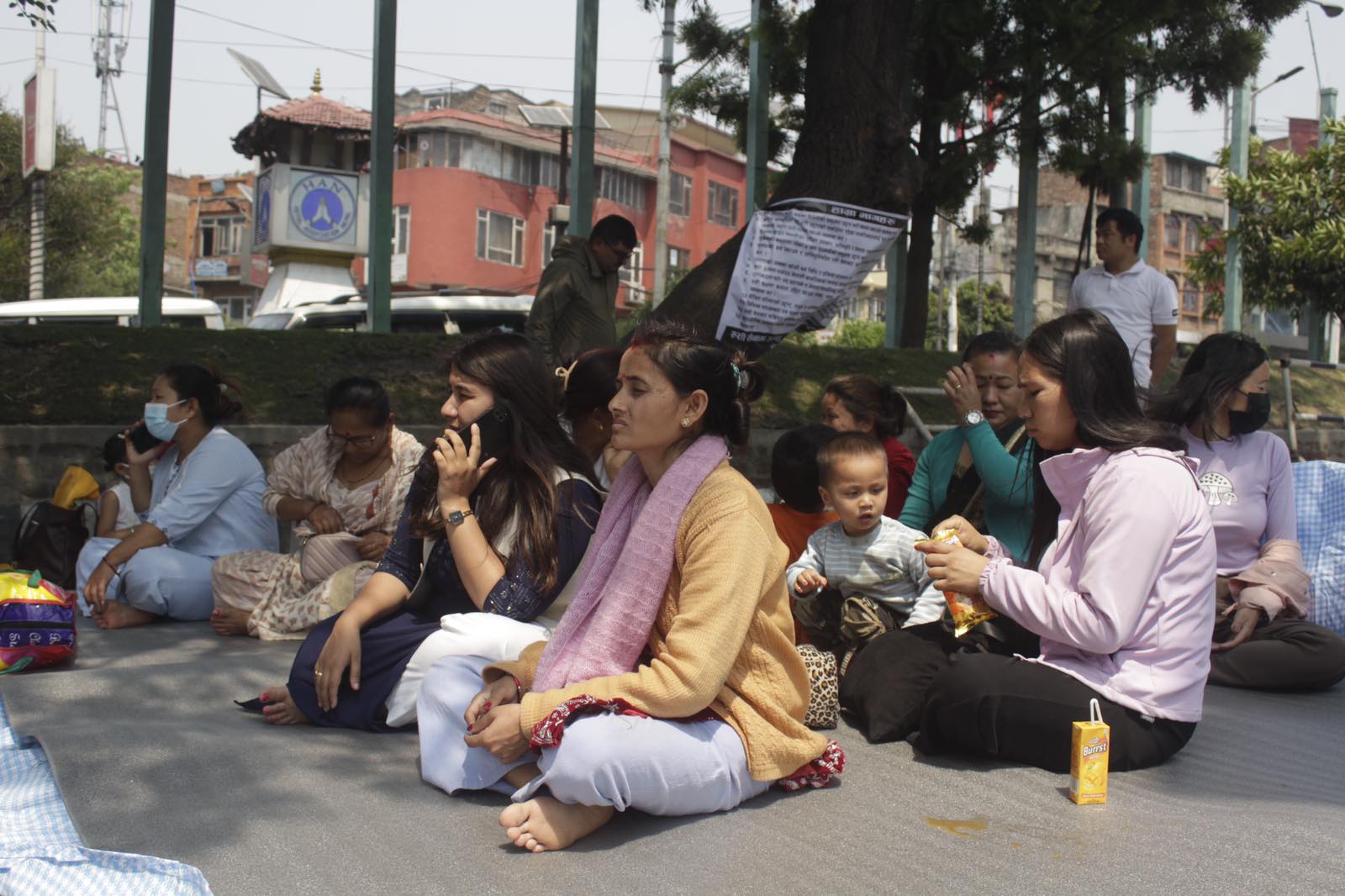
OR

The academic peers at TU seem to be adopting ‘crawling’ approach when it comes to TU’s institutional development
Departments under Tribhuvan University are often chided for their inability to spur academic environment. But the separated Central Departments of Sociology and Anthropology seem to be doing otherwise. Just last week Central Department of Anthropology (CDA) organized its annual Dor Bahadur Bista memorial lecture which was delivered by Prof Dilli Ram Dahal. At the outset, the authors would like to congratulate the department for undertaking such an effort. The annual event started last year (the inaugural lecture was delivered by anthropologist Ram Chhetri) has begun to give a sense of academic calendar and additional flavor to the CDA.
These events have given hope that the academic vitality of TU’s eminent department would pave the way for others to follow suit. However, CDA can and should do more. The annual key note speeches delivered failed to ignite any enthusiasm among various observers of the academic history including the authors. The speech did not read like any standard key note speeches. The speaker was all over the place as he had chosen to speak on three different and unrelated topics. The first section of his speech was centered on Bista’s personal and professional life. The second part dealt with the issue of plagiarism focusing on the works of a senior anthropologist who was once the head of joint department of sociology and anthropology. The third looked at the idea of inclusion and exclusion in Nepal focusing on the usage (rather misuses according to the speaker) and its politics.
It was very difficult to decipher what Prof Dahal, a Western trained and among the senior most Nepali anthropologist, wanted to say and why such disparate topics were made part of a single key note speech. Key note speeches focus on single issues and are delivered at both length and breadth. But our senior colleagues don’t seem to be mindful of such important aspect of the task they agree to undertake. Also, a lackluster approach to such important events run the risk of making them ineffective and rendering it useless.
The CDA should also take some part of the criticism for such lackluster work as the topic was already in their notice. Further, it is disheartening to note that people claiming to be practioners don’t take enough note of the relevant literatures produced on the same theme one wishes to work on. This was evident in the leaflet of the key note speech which failed to acknowledge many works produced on Bista. Even after more than three decades of existence and sizeable experience both at home and abroad, the academic peers at TU seem to be adopting ‘crawling’ approach when it comes to the institutional development. In fact, such things appear to be a dejavu if one looks at the review of disciplinary growth. Right from the beginning, the narrative of being in an incipient stage is a running motif and the folks at TU seem to be unable or at times unwanting to come out of this syndrome.
This syndrome is also visible on the publication front. CDA has been coming up with various publications such as on Kinship, peasantry among others. But these don’t give a sense of either empirical or analytical framing. These works (at least one of them has been reviewed by the authors) appear patchy and miss on the coherence. The faculties at TU come up with lame excuse that they are just beginning to produce as an independent department. Notwithstanding the argument, it makes little sense for folks at CDA to make this claim as it is evident that anthropological dimension had dominated the erstwhile joint department. While these criticisms are not to belittle the efforts made by the CDA, the intent here is to give them a critical feedback as developments in the department have ramification on how anthropology produced from Nepal is viewed.
Adopting inter-disciplinary approach is must. Therefore, inviting scholars from other disciplines and those outside the TU would add to the diversity of the approaches taken to enhance the academic rigor. While some efforts towards this end is visible, for instance, in the colloquium run by the department, there still exists hesitations in inviting people to run a full fledged course. A humble beginning toward this end can be the diversity of speakers in the annual Bista lecture. There are individuals in others disciplines and outside TU framework who can speak on Bista or on relevant themes that the department is seeking for. Finally, among many factors to evaluate the academic merit of a department, journal counts at the top.
Therefore, it is only desirable that CDA comes up with its journal (which of course should be multilingual).
The authors are faculty members at Kathmandu School of Law
You May Like This

Revitalizing sociology and anthropology
Visual images are powerful mediums in understanding people and the society. They help us memorialize the events of the past... Read More...

TU grappling with financial problems
KATHMANDU, Jan 6: Tribhuvan University, the oldest university of Nepal, is facing financial problems. The government is blamed for not... Read More...

Tainted TU registrar Upreti promoted to professor
KATHMANDU, May 13: Tribhuvan University Service Commission (TUSC) has promoted the university’s controversial registrar Dilli Ram Upreti, to a professor.... Read More...

Just In
- Sajha Yatayat cancels CEO appointment process for lack of candidates
- Govt padlocks Nepal Scouts’ property illegally occupied by NC lawmaker Deepak Khadka
- FWEAN meets with President Paudel to solicit support for women entrepreneurship
- Koshi provincial assembly passes resolution motion calling for special session by majority votes
- Court extends detention of Dipesh Pun after his failure to submit bail amount
- G Motors unveils Skywell Premium Luxury EV SUV with 620 km range
- Speaker Ghimire administers oath of office and Secrecy to JSP lawmaker Khan
- In Pictures: Families of Nepalis in Russian Army begin hunger strike
















_20240419161455.jpg)

Leave A Comment